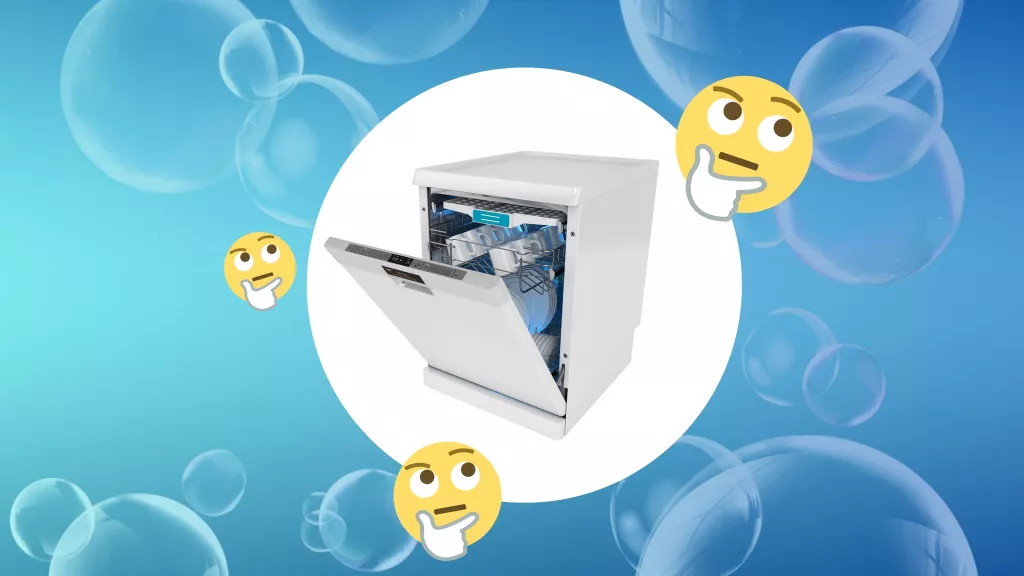Keeping your dishwasher clean is essential for ensuring its optimal performance and longevity. But how often should you clean this kitchen appliance that works tirelessly to make your life easier? The frequency of dishwasher cleaning depends on various factors, including your usage patterns, water quality, and the overall condition of the dishwasher. However, as a general rule of thumb, it is recommended to clean your dishwasher at least once every month. Regular maintenance not only helps eliminate unpleasant odors and built-up residue but also prevents potential clogs and malfunctions. By incorporating a routine cleaning schedule into your household chores, you can ensure that your dishwasher continues to deliver sparkling clean dishes with every cycle.
Why Cleaning Your Dishwasher Matters
A dishwasher is a vital appliance in any modern kitchen, providing convenience and efficiency in cleaning our dishes. However, over time, residues from food, soap scum, and mineral deposits can accumulate inside the dishwasher, affecting its performance and potentially leading to unpleasant odors, clogs, and even damage. Regular cleaning is crucial to prevent these issues and maintain a hygienic environment for your dishes.
Signs It’s Time to Clean Your Dishwasher
While establishing a regular cleaning routine is essential, there are certain signs that indicate your dishwasher is due for a cleaning session. Look out for the following indicators:
- Foul Odors: If you notice unpleasant odors coming from your dishwasher, it’s a clear indication that buildup and bacteria are present. Cleaning is necessary to eliminate the source of the odor and restore freshness.
- Film or Residue: If your dishes are not coming out as clean as they used to, and there is a noticeable film or residue on them, it’s time to clean your dishwasher. Buildup inside the appliance can transfer to your dishes and hinder their cleanliness.
- Clogged Spray Arms: If you notice reduced water flow or irregular spray patterns during a wash cycle, it may be due to clogged spray arms. Cleaning the dishwasher will help remove any obstructions and restore proper water distribution.
- Lime or Mineral Buildup: If you live in an area with hard water, limescale and mineral deposits can accumulate on the interior surfaces of your dishwasher. This buildup can affect its efficiency and may require more frequent cleaning.
How Often Should You Clean Your Dishwasher?
Now that you understand the importance of dishwasher maintenance, let’s address the primary question: How often should you clean your dishwasher? While there isn’t a one-size-fits-all answer, we recommend following these guidelines:
Monthly Maintenance Cleaning
Performing a thorough cleaning of your dishwasher on a monthly basis is a good starting point for most households. This routine maintenance will help prevent major buildup and keep your dishwasher operating at its best.
Additional Factors to Consider
However, it’s important to note that the frequency of cleaning can vary depending on several factors, such as:
- Frequency of Use: If you run your dishwasher frequently, it may require more frequent cleaning. High usage can lead to faster accumulation of food particles and debris.
- Water Hardness: As mentioned earlier, if you live in an area with hard water, mineral deposits can build up more quickly. Consider checking your local water hardness level and adjust your cleaning schedule accordingly.
- Visible Signs: Pay attention to the signs mentioned earlier—foul odors, residue on dishes, clogged spray arms, or limescale buildup. If you notice any of these signs, clean your dishwasher immediately, regardless of your regular cleaning schedule.
- Manufacturer’s Recommendations: Refer to your dishwasher’s user manual for any specific cleaning instructions or recommended maintenance intervals. Some manufacturers may provide tailored guidelines for their dishwasher models.
Step-by-Step Guide to Cleaning Your Dishwasher
Now, let’s walk you through a detailed step-by-step process to effectively clean your dishwasher and keep it in top shape:
- Gather Your Supplies: Before you begin, gather the necessary supplies, including rubber gloves, white vinegar, baking soda, a soft brush or toothbrush, and a microfiber cloth.
- Clear the Dishwasher: Remove all dishes, utensils, and any other items from the dishwasher. Check the drain and remove any visible debris that may be blocking it.
- Wipe Down the Interior: Take a damp cloth or sponge and wipe down the interior walls, racks, and door of the dishwasher. Pay extra attention to the areas around the door seals and the edges where residue can accumulate.
- Clean the Filters: Locate the dishwasher’s filters. These are typically found at the bottom of the dishwasher. Remove the filters and rinse them under warm water to remove any food particles or debris. Use a soft brush or toothbrush to gently scrub away stubborn residue.
- Run a Vinegar Cycle: Place a cup of white vinegar in a dishwasher-safe container, such as a bowl or glass, on the top rack of the dishwasher. Run a hot water cycle without any dishes or detergent. The vinegar will help dissolve grease, remove odors, and tackle mineral deposits.
- Baking Soda Scrub: Sprinkle a generous amount of baking soda on the bottom of the dishwasher. Run a short hot water cycle to distribute the baking soda and allow it to work its magic. Baking soda is excellent for neutralizing odors and acting as a gentle abrasive to remove stains.
- Final Rinse: After the baking soda cycle, do a final rinse by running a hot water cycle with no vinegar or baking soda. This will ensure any remaining residue or cleaning agents are thoroughly washed away.
- Wipe Down the Exterior: While the dishwasher is running its final rinse, take a moment to wipe down the exterior surfaces using a clean cloth or sponge and a mild detergent. Pay attention to any control panels, buttons, and handles.
- Dry and Reassemble: Once the dishwasher cycle is complete, use a dry cloth or towel to wipe down the interior and exterior surfaces. Reassemble the filters and any removable parts that were taken out during the cleaning process.
- Maintenance Tips: To maintain a clean dishwasher between deep cleanings, follow these additional tips:
- Scrape off excess food from dishes before placing them in the dishwasher to prevent debris buildup.
- Use high-quality dishwasher detergent and rinse aid to enhance cleaning performance.
- Regularly inspect and clean the spray arms to ensure proper water distribution.
- Keep the dishwasher’s exterior surfaces clean and free from spills or stains.
Keeping your dishwasher clean is essential for its efficient operation and ensuring hygienic, spotless dishes. By following the guidelines provided in this article and establishing a regular cleaning routine, you can maintain the longevity and performance of your dishwasher. Remember to adapt the cleaning frequency based on usage, water hardness, and any visible signs of buildup. A well-maintained dishwasher will not only save you time and effort but also contribute to a cleaner and healthier kitchen environment.




